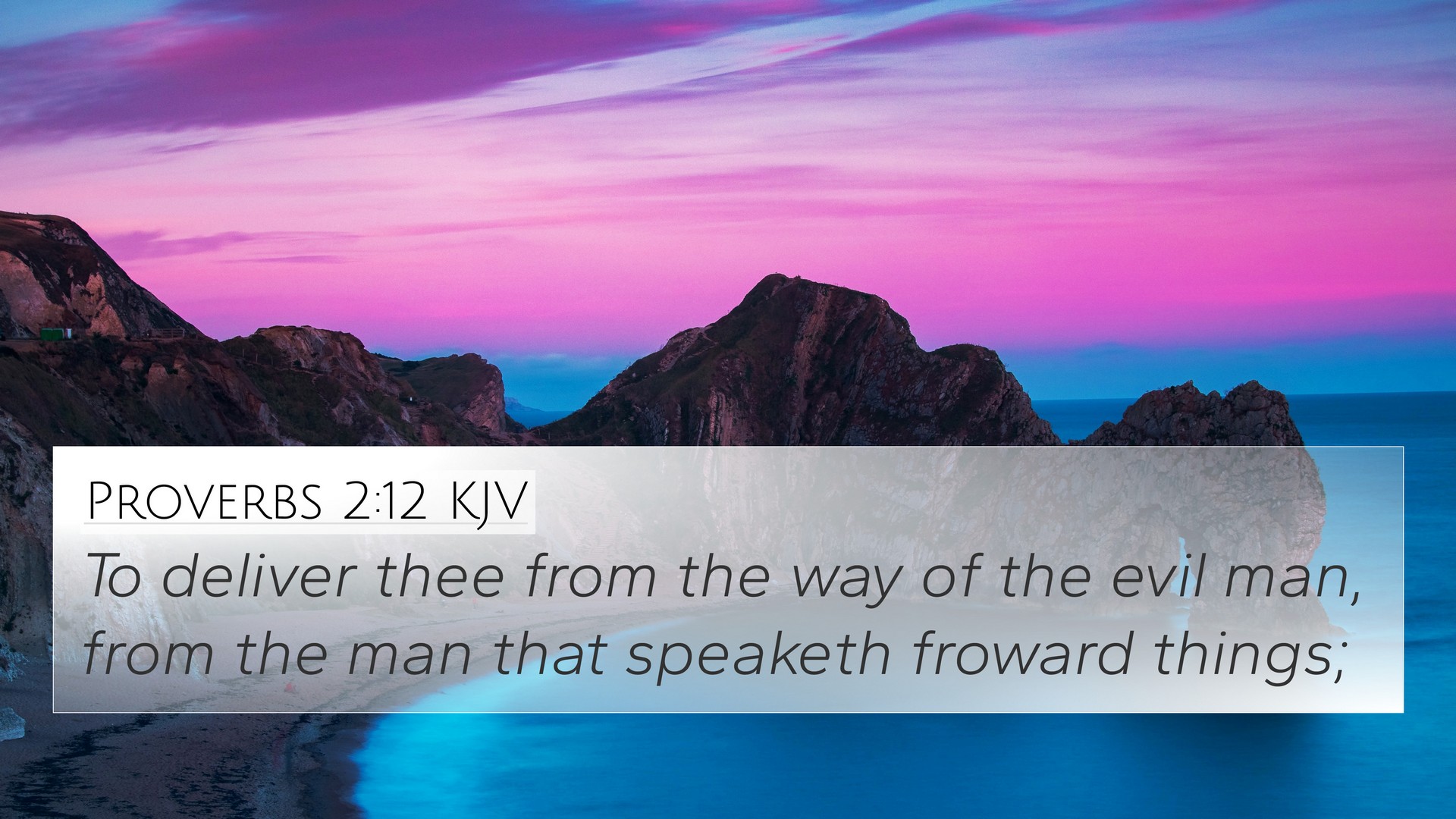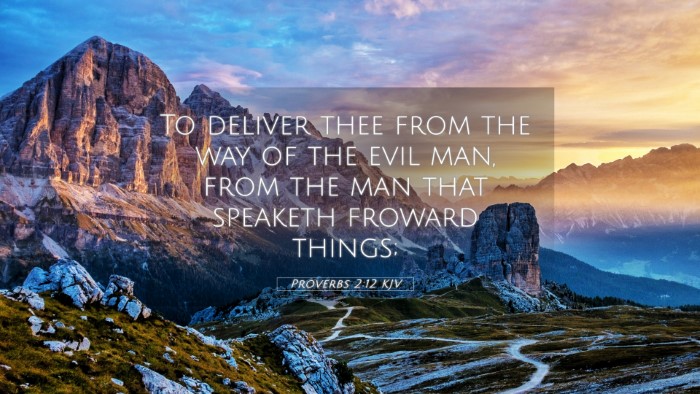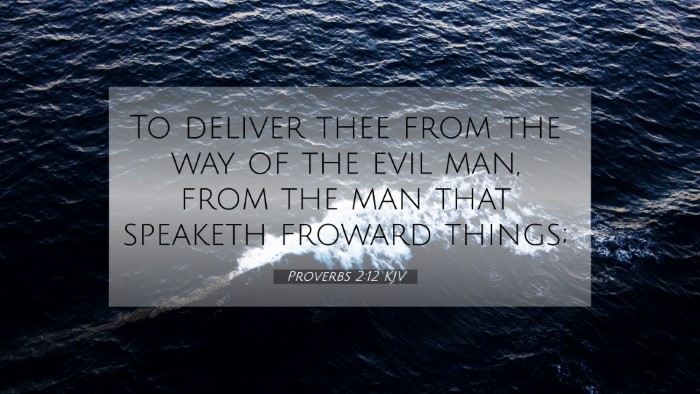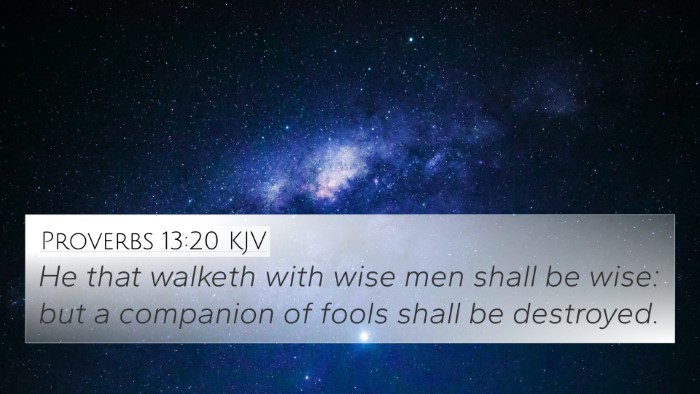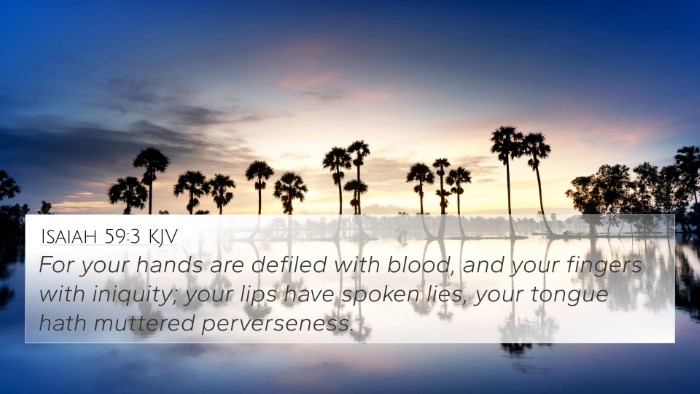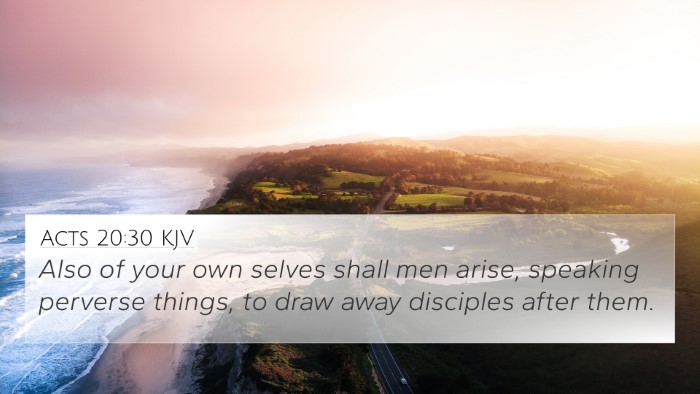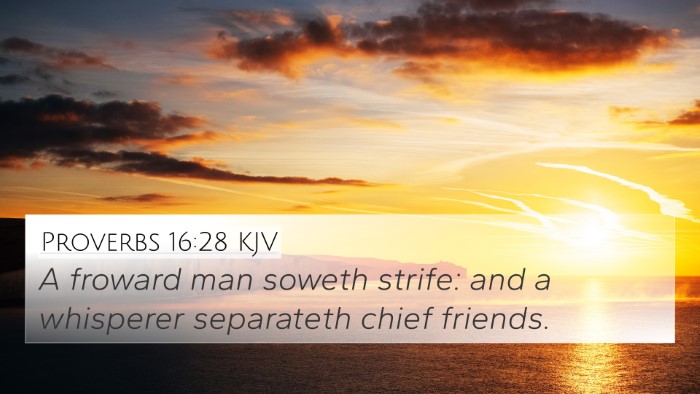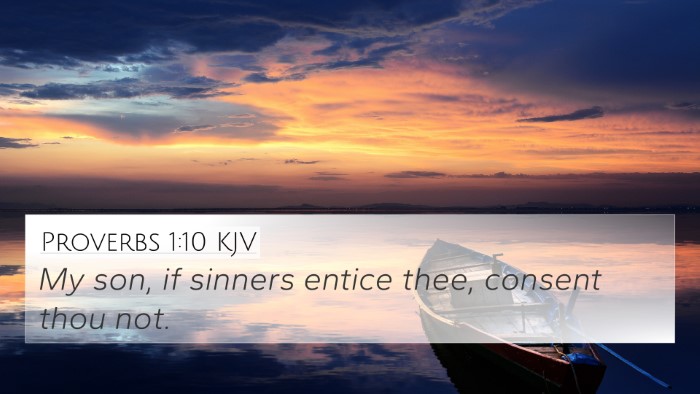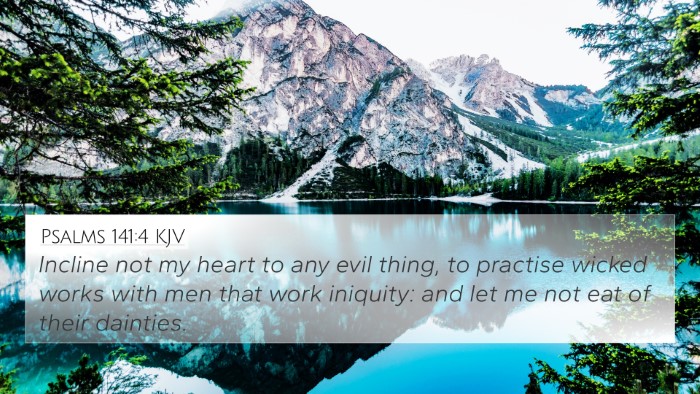Understanding Proverbs 2:12
Verse: Proverbs 2:12 - "To deliver you from the way of evil, from the man who speaks perverse things." (NKJV)
Overview
This verse emphasizes the importance of wisdom and understanding as protective elements against the influences of evil in society. It suggests that the pursuit of wisdom enables individuals to discern and avoid pathways that lead to wrongdoing.
Commentary Insights
Insights drawn from public domain commentaries reveal several layers of meaning:
-
Matthew Henry:
Henry emphasizes the protective role of wisdom, noting that one of its chief benefits is its ability to deliver a person from the corrupting influences of evil men. The "way of evil" signifies not only actions but also thoughts and intentions that deviate from righteousness.
-
Albert Barnes:
Barnes highlights the characteristics of those who pervert their words, showcasing how they harm themselves and others through deceit. He explains that recognizing and avoiding such individuals is a gift of divine wisdom, safeguarding believers from moral corruption.
-
Adam Clarke:
Clarke discusses the implications for both personal conduct and societal engagement. He notes that understanding the nuances of language and being attuned to the moral undercurrents of relationships can profoundly impact one’s ethical decisions.
Application and Relevance
In a world filled with varying viewpoints and moral dilemmas, the core message of this verse serves as a guiding principle for individuals seeking to navigate complex relationships and societal expectations. It promotes wisdom as a fundamental approach to discernment in both personal and communal contexts.
Related Bible Verses
Proverbs 2:12 connects with several other scriptures that explore themes of wisdom, evil, and discernment:
- Proverbs 1:10 - "My son, if sinners entice you, do not consent." This verse cautions against the allure of evil companionship.
- Proverbs 4:14-15 - "Do not enter the path of the wicked, and do not walk in the way of evil." A direct command to avoid evil paths.
- Psalm 1:1 - "Blessed is the man who walks not in the counsel of the wicked." This illustrates the blessings of avoiding evil associations.
- 2 Timothy 3:13 - "But evil men and impostors will grow worse and worse, deceiving and being deceived." A warning about growing evil in society.
- James 1:5 - "If any of you lacks wisdom, let him ask of God." A call to seek divine wisdom to navigate life’s challenges.
- Proverbs 14:7 - "Go from the presence of a foolish man, when you do not perceive in him the lips of knowledge." An exhortation to discern who to associate with.
- Proverbs 12:26 - "The righteous should choose his friends carefully, for the way of the wicked leads them astray." The importance of companionship in one’s moral journey.
- 1 Corinthians 15:33 - "Do not be deceived: 'Evil company corrupts good habits.'" This verse highlights the corrupting power of associations.
- Galatians 6:7 - "Do not be deceived: God is not mocked; for whatever a man sows, that he will also reap." This reflects the moral law of consequence tied to one’s choices.
- Romans 12:2 - "And do not be conformed to this world, but be transformed by the renewing of your mind." Encourages a mindset aligned with divine wisdom over worldly influences.
Conclusion
The message in Proverbs 2:12 resonates with the modern believer’s journey. It calls for vigilance and reliance on wisdom when faced with moral choices and influences. Through the lens of cross-referencing related scriptures, one can see a holistic view of biblical teaching concerning evil and righteousness.
